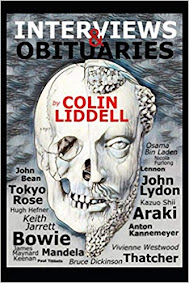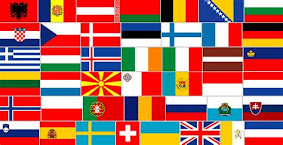As Srdja Trifkovic has already recorded on this site, Geert Wilders has continued his remarkable political progress with better-than-expected results in the Dutch general election of 9th June. His Partij Voor Vrijheid (PVV) increased its number of seats in the Dutch parliament from 9 to 24. An election fought ostensibly on the economy and Afghanistan clearly had an important if sotto voce immigration angle.
Dutch politics are complex, and getting more complex as the comfortable postwar consensus breaks down irretrievably. As the Guardian’s Ian Traynor noted on 10 June, “The election… revealed a political spectrum fragmented as seldom before and thoroughly polarized.”
There are 150 seats in the Dutch parliament, divided between many parties. The final results will not be in until 15th June, when overseas votes are tallied, but these will make little difference. Provisionally the PVV is the third largest party, coming after the vaguely right Liberal Party (VVD) led by Mark Rutte with 31 seats (up from 21) and the Labor Party (PvDA), on 30 (down from 32). Fourth is the Christian Democrats (CDA) of the appropriately-named Jan Peter Balkenende, the outgoing Prime Minister, down from 41 to 21 seats.
Wilders has said that he would like to be part of the new government, and Rutte has not ruled him out as an ally. But the odds-on outcome is a so-called “Purple Coalition” (Labor red plus Liberal blue), yoking together Labor, the Liberals and small parties like the Green Left in an “anyone-but-Wilders” ad hoc alliance likely to be as short-lived as the last four governments (this is the fourth election since 2002).
A Purple pact would mean that Rutte’s stated program of monetary responsibility and immigration control would be stymied at every turn by his ostensible “allies” – whereas it would be relatively easy to put together a programme that could unite the VVD, the PVV and the CDA into a government with a two-seat majority.
In theory, all three parties agree on immigration restriction, Euroscepticism, tax cuts, public spending cuts, clamping down on drugs, tackling crime, and raising educational standards -- and such a program would almost certainly command support from the two conservative Protestant parties, which between them have a further ten MPs. The 75 seat Senate (where no party has a majority and there are no PVV members) could act as a temporary block on legislation, but elections for the Senate are due next year, and on present trends the PVV should do well there, too.
But Wilders’ forthcoming trial for inciting racial hatred and discrimination by means of his film Fitna are being used by churlish Leftists and panicky conservatives as a pretext to sideline him. In other European countries where ‘far-right’ parties are obvious coalition partners, too many conservative politicians prefer betraying their voters to courting controversy.
To be fair to these squeamish conservatives, there are a few problematic aspects to Wilders and his party, even for those who wish him well and hope fervently that the Netherlands can be saved. The first is that he has a reputation for being awkward to deal with -- an all too likely character trait in a strong-minded person who has endured great obloquy. It is possible that even if he gets a fair coalition offer he might not accept.
There are deeper difficulties. Even those who share his distaste for Islamization may feel his anti-Islamic feelings go too far. He has said on more on than one occasion that “I hate Islam.”Now, Islam is not my religion, I find it aesthetically unappealing and intellectually untenable, and I do not feel it belongs in Europe, except possibly as a relict historical trace in parts of the Balkans. I admire Europe’s historical freedom fighters like Charles Martel, Rodrigo Diaz de Vivar, Jean de la Valette, Marcantonio Bragadino and John Sobieski, and favor ending Islamic immigration, multiculturalism and the building of minarets.
Nevertheless, Islam is an integral part of world culture that has given rise to a great civilization, and gives comfort to millions of intelligent and decent people around the world. It is therefore facile and cheap to dismiss it, as Wilders has, as “violent, dangerous and retarded” and to call Mohammed “the devil…a barbarian, mass murderer and a paedophile.” The PVV policies that flow from this attitude -- such as a tax on wearing headscarves, and a ban on the Koran -- amount to overkill, and are frankly inconsistent with Wilders’s protests at curbs on his own freedom. There is a certain shrillness to his view of Islam that is inconsistent with his stated fondness for humanism and liberalism. (Incidentally, Wilders is a Catholic-turned-atheist.)
In place of the Dutch postwar model of pluralism and consensus, he favors an approach that has been summarized as ‘intolerance for the intolerant.’ What this means in relation to the Koran is obvious, but it is unclear how this open-ended concept might apply to other tendencies of which he disapproves.
Some have speculated that this approach could also be used to condemn or ban non-Islamic groups. Islamic precepts against homosexuality, for instance, are shared by many traditionalist Christians. In March this year, Wilders pulled out of speaking at the launch of an American-made documentary film called Islam Rising: Geert Wilders’ Warning to the West, because one of the leading figures of the Christian Action Network (which cooperated in the making of the film) had made what can in this case justifiably be called “homophobic” remarks. These remarks were foolish -- yet such attitudes are probably common even in the Netherlands, particularly among those who vote PVV, VVD, CDA or for the two religious parties. Would Wilders seek to outlaw such views? The party is more or less silent on such things as rebuilding the family, which one would have thought would be a central aspiration such as his. Perhaps he fears alienating homosexual supporters, but one suspects that most of these do not support the PVV in any case.
He also regards Jean-Marie Le Pen and parties like the Austrian Freedom Party as being mirror images of Muslim extremists. He told the Guardian in 2008:
My allies are not le Pen or Haider… We’ll never join up with the fascists and Mussolinis of Italy. I’m very afraid of being linked with the wrong rightist fascist groups.
This would appear to be his attitude, too, towards the Vlaams Belang in neighbouring Flanders, with whom he could benefit by cooperating in his aim of reuniting Flanders and the Netherlands. In his estimation of these groups, he has unwittingly fallen for the mendacious propaganda of those who anathematize him and his supporters in identical terms.
It has been speculated that Wilders’ slightly schizophrenic view of the ‘far Right’ is due his mother, who was born in Sukabumi (what is now Indonesia) and is of mixed race -- but Wilders has denied any such “Indo” imputation. However, he has said little about immigration in general, limiting his critique to the still difficult but slightly easier target of Islamic immigration. Is this a purely tactical decision, or does he welcome mass immigration, so long as it is not of Muslims?
In contrast with his views on Islam and the ‘far right’, his attitude towards Israel is apparently entirely uncritical. He lived in the country for two years when young, and has visited about 40 times. He has said he has “a special feeling of solidarity” for Israel, “the West’s first line of defence.” But even those (like the present writer) who tend towards pro-Israelism must accept that Tel Aviv is not always in the right. Apart from shared dislike of Islam, his pro-Israel motivations seem to be complex -- his father’s bitter memories of World War II plus happy memories of youthful experiences and friendships plus the piquant fact that, as Wikipedia puts it delicately, “American supporters of Israel financially supported Wilders.”
Wilders’s susceptibility on this subject may mean VVD and CDA politicians will be concerned about the impact his presence in government could have on foreign policy.
Again according to Wikipedia, Wilders ended up living in Israel because he could not afford to go to Australia. Dutch politics might now be utterly different had the young Wilders been able to afford the ticket to what his countryman Abel Tasman christened “New Holland”!
These reservations having been duly registered, the PVV is far and away the best political party in Holland, and Wilders easily the bravest and most brilliant of its politicians. His rise is evidence that there is life in the Old World yet. But sometimes the PVV pendulum goes too far in one direction, distorting its message and limiting its appeal as a reliable ally. Hopefully, this still very new party will settle down and become less a one-man band and more a widely-based permanent presence, in a country in urgent need of courage and statesmanship.































No comments:
Post a Comment
Your comment will appear after it has been checked for spam, trolling, and hate speech.